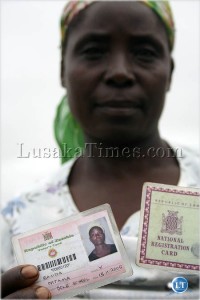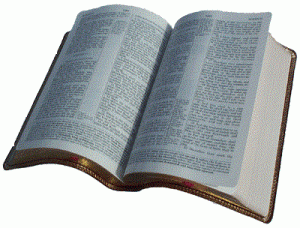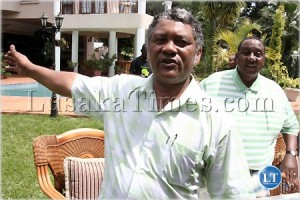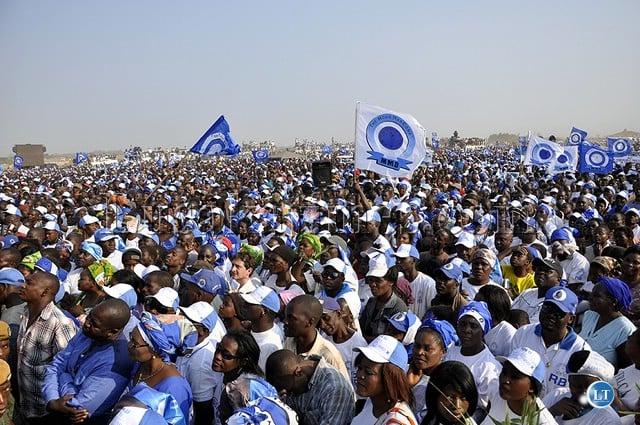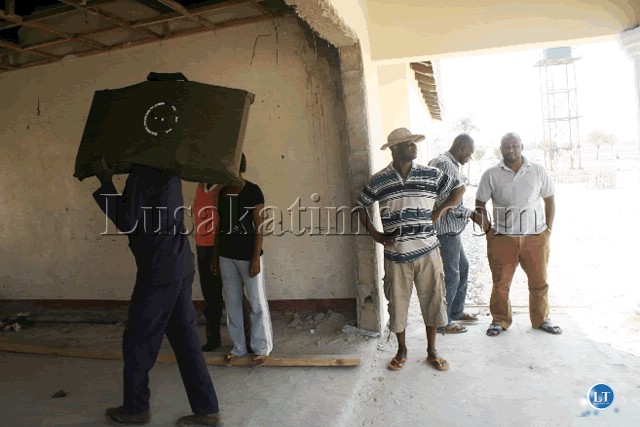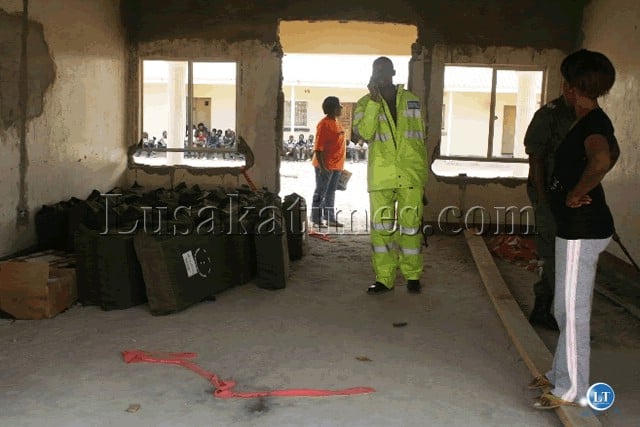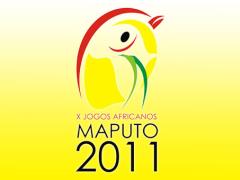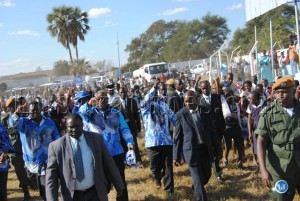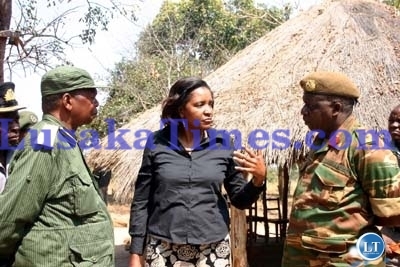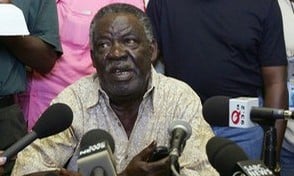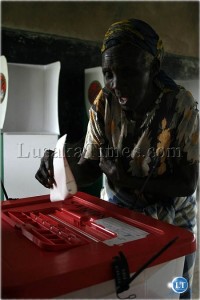
By C.Chibomba
On 20th September 2011 the people of the Republic of Zambia will be going to the polls to cast their vote on who should have the right to rule them for the next 5 years.
The Contenders
10 political parties have put forward presidential candidates. Several more parties chose to sit out these elections, having read the landscape and seeing the writing on the wall which, to all intents and purposes, gave them the reason to believe that it was best to abstain.
Most pundits, including the majority of pollsters, have put their money on Rupiah Banda to take the day.Banda is the current President and is the candidate for the ruling party, the Movement for Multi-party Democracy (MMD)He has tirelessly criss-crossed the country taking the message of development and more development if re-elected. It is evident that his message has been well received judging from the huge crowds seen at his campaign rallies. The opinion polls have consistently favoured Banda with outcomes of between 42 and 48%. His chances of retaining the presidency have not diminished.
Michael Sata is the candidate put forward by the largest opposition party, the Patriotic Front (PF). He is performing reasonably in the opinion polls, garnering results of between 30 and 38%. Sata stood the best chance of ousting Banda from the presidency when his party sat in a political pact with the United Party for National Development (UPND) for a period of about three years. The Pact adopted a common strategy to build a strong force to fight the ruling party at the polls. In due time, the Pack showed signs of wooing voters to its side. Believing that the Pact was headed for election victory, some elements in Sata’s Patriotic Front became greedy and contrived to ‘allocate’ themselves positions in a perceived future Government. This enraged their partners in the Pact from the UPND and thus the Pact crumbled and diminished Sata’s chances of ascending to the presidency. Sata is now desperately trying to pick the pieces but has a hard task to dislodge Banda.
The third largest party in the country is the United Party for National Development (UPND) and its presidential candidate is Hakainde Hichilema. As the junior partner in the erstwhile Pact, the best he had hoped for was as Vice President to Sata. With the collapse of the Pact, Hakainde has heaved himself up as a possible contender to the highest office. Unfortunately for him, his party is parochial and has support only in one part of the country. It is a massive task for him to penetrate the rest of the country and there is little hope that he can be a threat to either Banda or Sata. The opinion polls give him a lowly 13% of the vote. His best chance would be to go into alliance with one of the larger parties, particularly the MMD who are the likely winners this year.
Then there are the other seven parties. What is most significant about these parties are their fancy names. They are basically also-runs with no real hope of upsetting the order of things. For the benefit of a complete picture, these other parties in contention are:
The Forum for Democracy and Development (FDD). It is the only party whose candidate is female, Edith Nawakwi. Nawakwi was once a Minister of Finance whose appeal has been to women to come out in numbers to vote for her. This is a long shot because, while women voters are in the majority, it is unlikely that the will deliberately vote for her simply because she is a woman. Party leaning normally holds sway when voting.
The National Movement for Progress (NMP). This is a new party hardly a year old formed by Ng’andu Magande. He also once served as a Minister of Finance and only formed his party after being hounded out of the ruling party when he fell out with the elite. His chances of success at the polls are next to nil.
The Alliance for Democracy and Development (ADD). Its president is Charles Milupi who vacated his seat in Parliament as an independent member to form his party just over a year ago. He successfully defended his seat in a by-election and came back to Parliament as party president, the only member representing his party. His popularity is limited to his constituency and is unknown elsewhere in the country. He has no chance of success in the presidential race.
The Heritage Party (HP). Godfrey Miyanda a former soldier, is the head of this party and its presidential candidate. Miyanda once served as the country’s Vice President and broke away from the MMD to form the Heritage Party hoping to ride on the fact that 90% percent of the population in Zambia is Christian and the country has a constitution which declares it a Christian nation. Even by a long shot, none of this is likely to win Miyanda the presidency and so his campaign is largely futile.
The United National Independence Party (UNIP). This is the oldest political party in Zambia fashioned by the first president, Kenneth Kaunda. His son, Tilyenji Kaunda is now at the helm and is hoping to walk in his father’s footsteps by also becoming President. Alas, his is virtually an impossible task. UNIP collapsed in 1991 with the introduction of multi-party politics. The party went into oblivion to the extent that in the last parliament, it had only one representative in the House who, interestingly, has since defected to the ruling party. UNIP has no significant support anywhere in the country and only pride drives its leadership to keep its name afloat. Kaunda might as well not be contesting the presidency.
The Zambian for Empowerment and Development (ZED). This is one of the several parties created recently merely to congest the free democratic landscape knowing full well that there’s was a futile exercise with no hope of landing the ultimate prize. Its leader is Fred Mutesa, a University don with radical ideals which cannot appeal to a population interested mainly in having food at the table and decent schools to send their children to. Mutesa’s vision of a utopian Zambia only understood by his students at University will not win him any votes. He stands no chance.
The National Restoration Party (NAREP). This is a party formed just over a year ago, whose appeal is mainly to the youth. The leader, Elias Chipimo Junior, is the youngest presidential candidate, a rising young lawyer, whose father, Elias Chipimo, was once a prominent politician, banker and diplomat. Chipimo’s ambition is to exceed his father’s achievements and become President of Zambia and so fulfil the adage that says the youth are leaders of tomorrow. He has preached this message mainly to the youth attempting to convince them that he time for the youth to lead has come sand so they should vote for him. The reality of the situation is that even the combined votes of all the registered youth would not win him the election.
The other two parties are really not worth mentioning. At best, they are ‘one-man’ parties and do not add value the political landscape in Zambia. They are, nevertheless, good for the democratic outlook and dispensation in Zambia. There is fair play politically. Everyone is accommodated, everyone is heard and everyone is given an equal chance to participate and have their say. Only the votes to cast on 20 September 2011 will decide who will be the next President of Zambia.
It’s worth noting that Zambia’s prevalent brand of politics is very personality driven, with many of its leading politicians building cults of personality based on messages that resonate with their followers. Many of the parties have not held democratic conventions and have leaders who have been attempting to be president for the last ten years. In the case of the two largest opposition parties the PF recently held a general party convention, the first in its ten year history. But this convention was characterised by autocratic decision making from the top, with Michael Sata choosing how positions should be allocated across the board. In the past the party did not even bother to attempt to practice any real internal democracy, its leader is known for his autocratic tendencies, suspending and appointing members at will. Since Anderson Mazoka’s death, Hakainde Hichelima the new leader of the UPND has not held a party convention either. Without transparent governance mechanisms it is difficult to tell how the opposition parties could meaningfully change the political landscape as far as corruption and transparent governance is concerned. With many of the opposition parties filled with disgruntled ex-MMD members it is also difficult to say how much they would actually change the socio-economic environment for the better.


